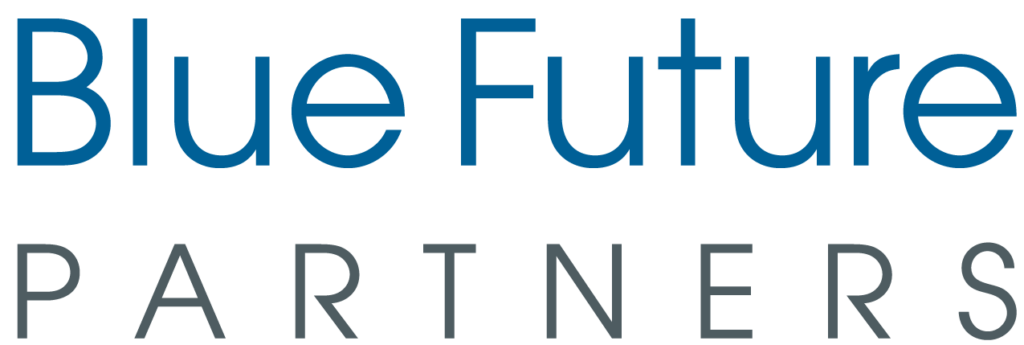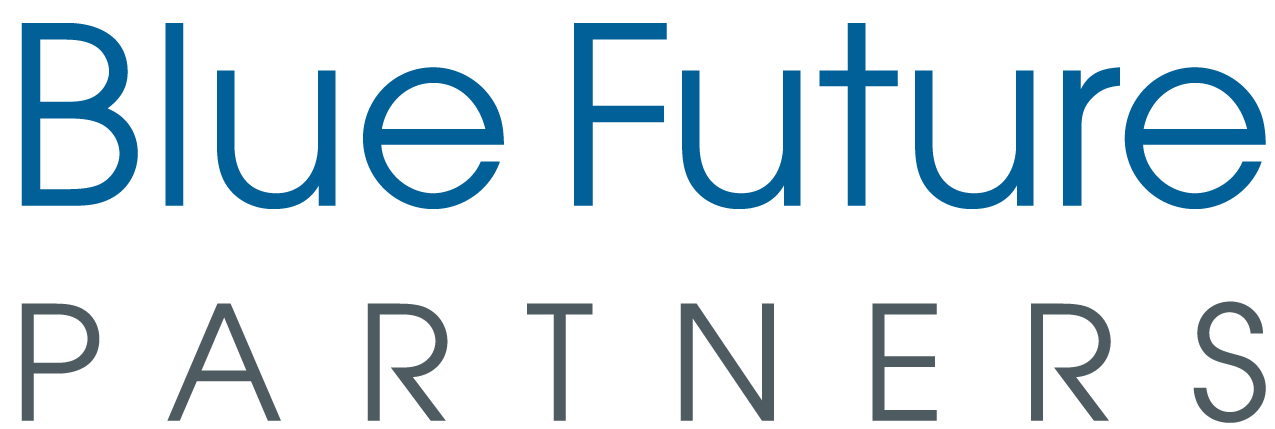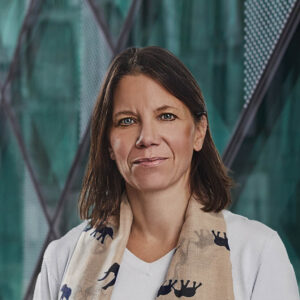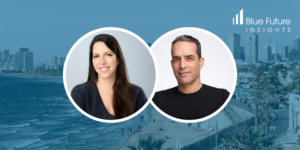With our #ESGinVC initiative, we want to foster a discussion around ESG and help each other develop and improve our frameworks. As part of this initiative, we spoke to leading managers and LPs about their ESG frameworks. The long-form interviews will be published in a reader on our website, while we will regularly post interview extracts on our social media channels (Linkedin — Twitter — Medium).
The interview below is with Lauren Lentz, General Partner at Revent.
—
Why did you decide to start Revent, a fund purely focused on impact investments?
We saw how the tech-ecosystem in Europe was evolving, with more and more founders starting purpose-driven tech companies centered around a problem with real significance to the planet or to society. These companies attract particularly strong talent and are helped by the tailwinds of changing regulation, shifting consumer preferences, and the huge scale of many of today’s structural challenges like climate change, demographic change, health systems under tremendous pressure, which collectively gives them a higher chance at success.
On the other side, the urgency of these structural challenges has never been clearer, and this was only exacerbated with the onset of the pandemic. As a result, we saw a unique opportunity to start a next-generation impact VC that places equal priority on returns and impact – and the response from both investors and founders demonstrated that this value proposition resonates.

How do you assess the potential impact of startups before investing? Beyond sustainability, do you also monitor other ESG metrics?
As a part of every diligence process, we go through a structured assessment process with a scorecard based on the IMP’s 5 dimensions of impact. As a part of the scorecard, we also assess the team’s commitment to impact, the extent to which they’re authentically purpose-driven. Whenever possible, we also carry out an impact forecast using input and proxies from other companies or research. Finally, we look at the ESG risk factors associated with the company, from treatment of employees to climate impact to risks of weak governance structures.
Once we start working with companies, we begin by collectively defining 1-3 impact KPIs and goals that get measured and managed by the team. We also begin a conversation about good ESG practices early, and once the company has reached sufficient maturity, support them in implementing these practices. Going forward, we’ll also support companies in applying for ESG certifications as well, such as B Corp.
After investing, how do you collaborate with the founders to help them reach their impact goals? Do you offer specific support beyond capital?
We typically run an impact sprint with our companies, which is a series of short workshops to define a theory of change, impact KPIs, and impact goals. We stay available as a sparring’s partner to help founders think through impact measurement challenges. For example, if there’s not a good measure available, what is the best proxy? Are there other workarounds to get to a rough measurement? We can also get more involved in the actual measurement if desired.
“…we believe strongly in setting up an organizational culture that exemplifies robust ESG practices.”
In general, we like to maintain a close relationship with our founders and support on things like introductions, milestone planning, hiring, strategic topics, like pricing, market expansion, and orchestrating the next round. Our hope and expectation is that this general support increases the company’s overall likelihood of success and therefore its likelihood of actually delivering impact at scale.
How do you address ESG in your inhouse operations? Do you have a framework that you apply at your own fund?
Although we are a young fund, we believe strongly in setting up an organizational culture that exemplifies robust ESG practices. As such, we’re in the process of becoming a B Corp certified organization and have implemented as many of their “best-in-class” practices as possible. These include blind hiring, measuring and managing our climate impact, employee training and empowerment programs, and ensuring all team members have a voice at the table.
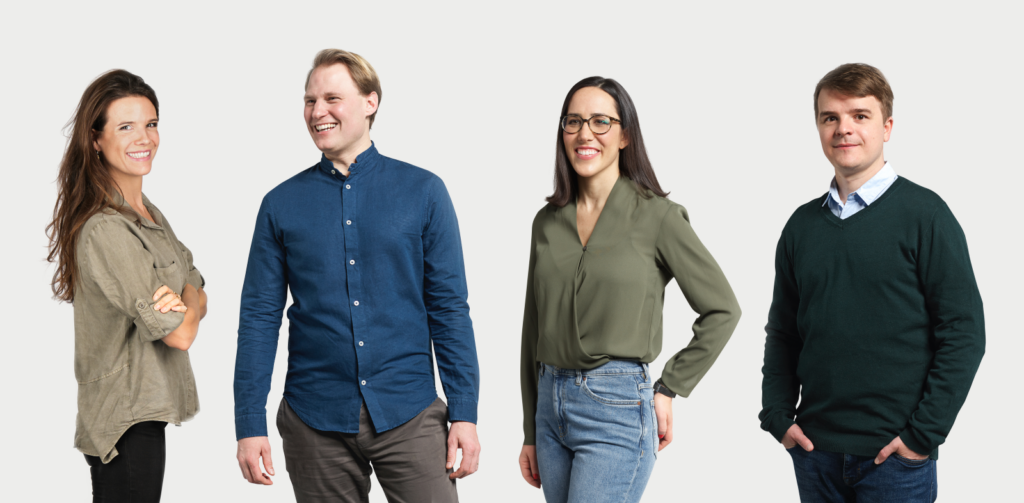
Your core principle is that the combination of purpose and profit amplifies performance. What are the exact mechanisms that can help impact startups have attractive commercial returns?
Our fundamental belief is that impact-focused startups which, by definition, are focusing on a significant problem and therefore typically a large market, should be particularly well-positioned to achieve attractive commercial returns. Of course, as with non-impact-focused startups, there are some companies whose business model, team composition, or product make breakout commercial success more likely than others; but in contrast to the way impact has often been discussed in the past, we do not believe that having a strong purpose in any way inhibits commercial potential.
“Our fundamental belief is that impact-focused startups …should be particularly well-positioned to achieve attractive commercial returns.”
Our advice to our portfolio companies is to keep their purpose as a north star, and to use the impact they’ve achieved and plan to achieve as a part of their company’s equity story and value proposition. Today, many decision-makers would much rather partner with a company that is trying to move the needle on a large problem than with a company for whom impact and ESG play no role.
—
About Lauren Lentz
Lauren is a social scientist by training who began her career at McKinsey & Company. An expert in impact measurement, she switched to the investment side after seeing how effective many tech founders have been in addressing some of today’s greatest challenges. Together with Otto Birnbaum, she co-founded impact-focused VC Revent in 2020.
Linkedin
About Revent
Revent is an early-stage (pre-seed to series A) venture capital fund, headquartered in Berlin, investing across Europe in mission-driven founders using technology to drive systemic change across the main investment topics of Climate, Food-Tech, Health, and Economic Empowerment. The fund was co-founded by Otto Birnbaum and Dr. Lauren Lentz.
Website – Linkedin
About Sabine Kaiser
Sabine has worked with Blue Future Partners as an external advisor since 2017. With more than twenty years of investment experience, Sabine has extensive expertise in fund manager selection and allocation spanning across private equity and venture capital. Previously Sabine was in charge of managing illiquid PE/VC/Credit fund investments and regional asset allocation at BTV, a German single-family office. Prior to that, she worked as a venture capital investor in the field of life science and as a strategic consultant with McKinsey & Company.
Linkedin
About Blue Future Partners
Blue Future Partners is a Fund of Funds with decades worth of experience in investing in Venture Capital. We specialize in backing Emerging Managers focused on early-stage technology investments.
Website – Linkedin – Twitter – Medium

